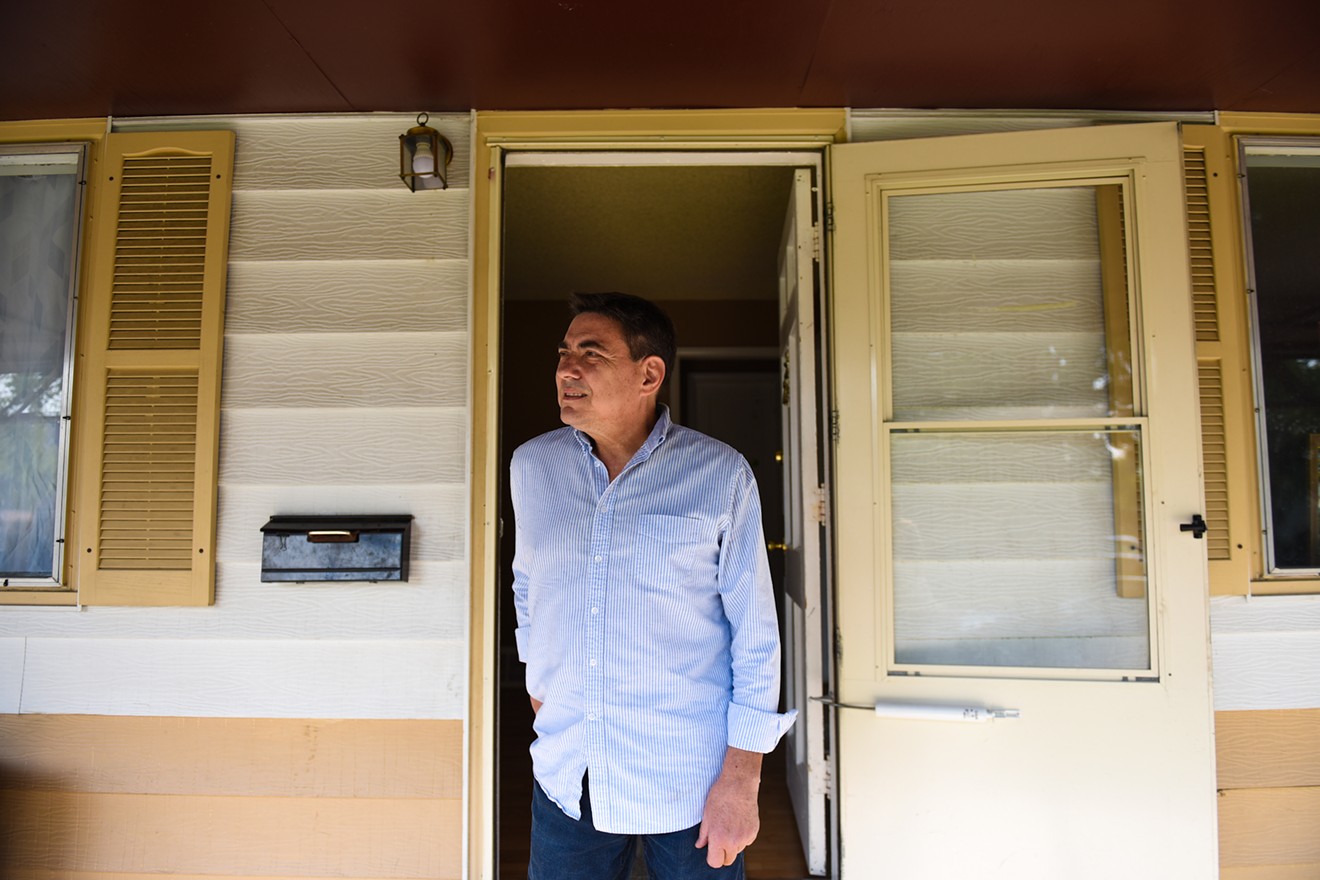The call came from the Denver chapter of International Rescue Committee, a humanitarian group based in New York City. The IRC had a family of Syrian refugees that needed to be moved into a house right away. Schweid had never rented to refugees before, but he tried to envision what they were going through, knowing that they were displaced. After some thought, he agreed to house them.
“He took a big risk. He stepped into something completely unknown and was willing to just take a chance on this family,” says Jennifer Wilson, executive director of International Rescue Committee’s Denver chapter.
Schweid didn't realize it at the time, but by agreeing to take them, in he saved the family from a truly desperate situation.
Asaad, Sabah and their seven children had lived as refugees for years in Turkey while they waited for the U.S. government to vet them. They finally arrived in America on January 18, 2017, just days before the Trump administration banned Syrian refugees from entering the country. An apartment in Arvada would be their new home.
They specifically sought out new lives in America because their nine-year-old son Montassar had autism and could receive an education tailored to his needs here. But years of fleeing violence and traveling in search of a stable home had left Montassar in a fragile state. As soon as they got into the apartment, he began screaming. Neighbors banged on the door, demanding that the child stop making noise. Neither Asaad nor Sabah spoke English. Living in the apartment became so untenable that after only a few days there, staff from International Rescue Committee, the group that brought them to the U.S., moved the family out.
“It was just one of those things where we felt like this family is going to feel a lot safer and just be in a better situation," Wilson says.
Wilson and her team found an ad for a single-family house available for rent in southwest Denver owned by Schweid. They immediately called him and explained the situation. The family moved into their new home just days later.
International Rescue Committee provided Sabah and Asaad with the basics for restarting their lives, including the exact minimum number of plates, utensils and beds the family of nine would need.
After Schweid noticed that the couch they had been given by IRC was beat up, he bought them a large sectional. He gave them a television and even a laptop for the kids to use. He also got them a lawn mower so that Asaad could keep the grass groomed. When the toilet overflowed, he sent over a plumber to have it fixed.
Schweid's mother passed away four years ago and left behind a sewing machine. When he learned that Sabah was learning to sew, he gave her the machine. Sabah has been using it ever since, sewing up various household items and also fixing clothes and blankets for her friends.
“I consider him my father," Sabah says. "He’s very kind and sensitive and never thought of me as weird."
Interactions between Schweid and his tenants weren’t always smooth. In the first months, he admits, he had trouble communicating with Asaad and Sabah.
“They used their phone as a translator," Schweid says. "We would sit there for a half-hour to do three or four minutes of work."

The view from the door of Asaad and Sabah's home. Some of those flowers will be moving to the new house.
Kenzie Bruce
At these visits, Schweid bonded with their kids. He even ended up employing the older boys in his landscaping business. Neighbors have also taken to the family, becoming friends with Asaad and Sabah.
Schweid knows of only one neighbor who has had issues with the family. “I think some people resent the fact that they had to really fight to get into the country,” he says.
Wilson explains that data belies the perception that refugees don’t work hard to establish themselves. “Yes, we do invest in refugees, but the return on that investment is significant,” she says. Asaad has been working odd jobs until he becomes proficient enough in English to take on something longer-term.
Sabah says after learning about the disgruntled neighbor, she took him sweets.
“It was very difficult in the beginning. We felt we were lost. Now we are much better,” Sabah says, with Asaad jumping in: “We feel that we are at home.”
Sabah chides her husband because he wants to move to another state in search of lower rent prices. “I say no, since all of our friends are here. That’s my favorite thing about Colorado — people are so friendly,” she says.
Although they don't plan on moving from the Denver area any time soon, Asaad and Sabah are moving to another house in Aurora, where they will be closer to other Arab families and a mosque. They have spent the past weeks packing up the few belongings they have, including the couch that Schweid bought for them.
Karen Moses, Sabah's English teacher, says she helped Sabah move flowers from the garden into a large pot so they can be taken to the new house. As Sabah dug out the flowers and placed them into the pot, she said to Karen, “This is me. Out of Syria. To America.”
And even though Schweid will no longer be their landlord, his close relationship with Asaad, Sabah and their kids has helped him form a new outlook on politics.
“Before this, I was probably the least political person you would ever meet in your life," he explains. "But I’ve always been one of those types of people that put myself in somebody else’s shoes. For a country like this, with the resources we have, we’re probably not putting enough toward this. More should be made available.”












